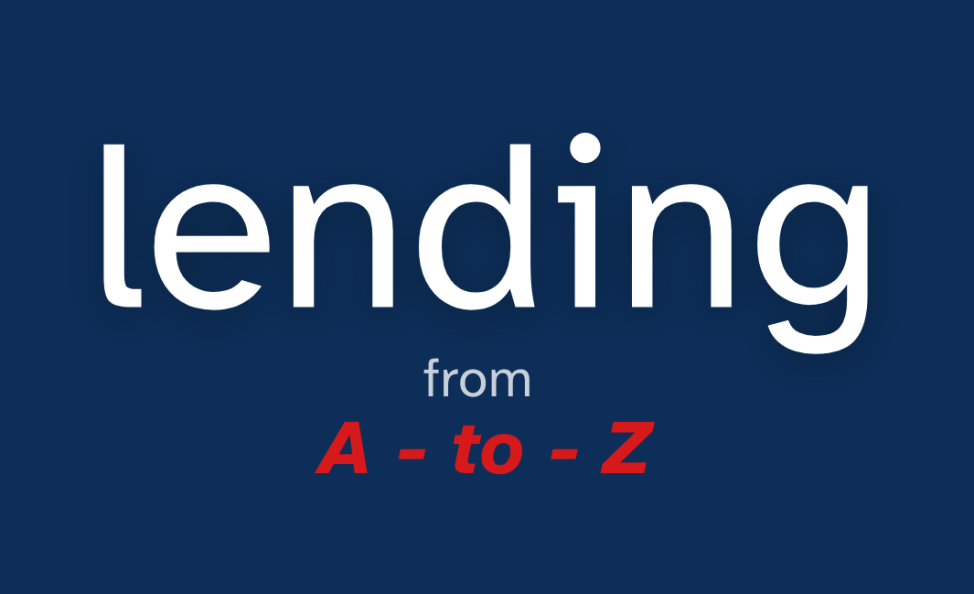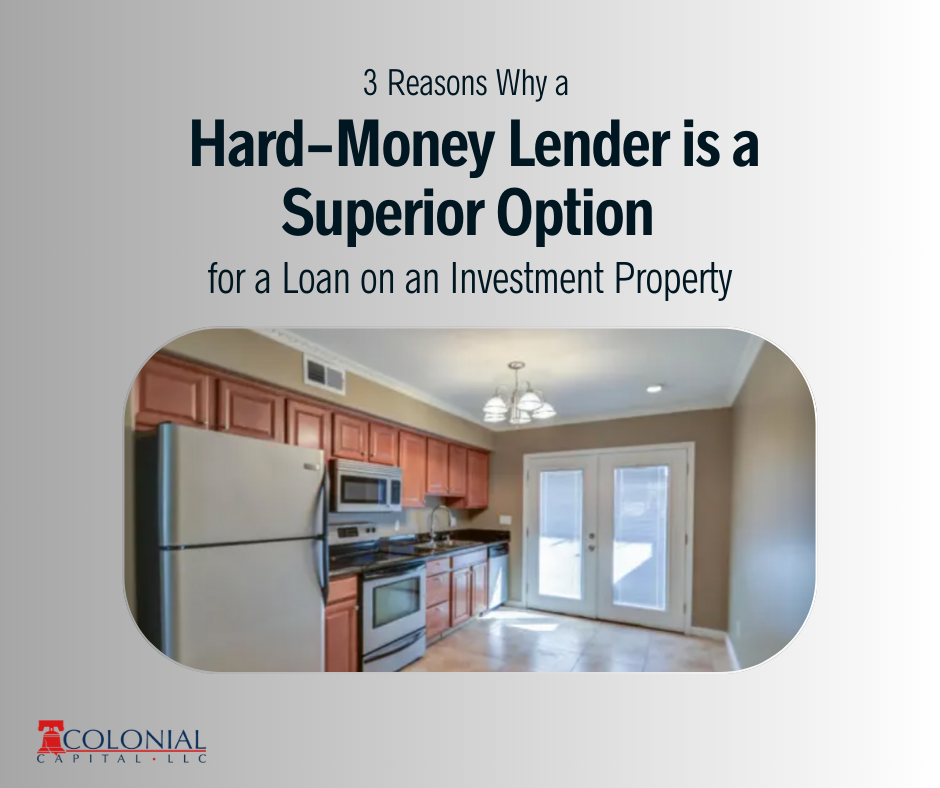Exciting news! We’re kicking off our Real Estate ABC Series, where we’ll explore everything from ‘Appraisals’ to ‘Zoning’!
Get ready for a journey through the A to Z of real estate with us.
A = AMORTIZATION
Heard of ‘amortization’?
It’s like the road map for paying off your loan. With hard money loans, you’ll often have interest-only payments at first, then switch to paying off both interest and principal.
Understanding this journey helps you plan your finances better!
• • •
B = BROKEN PRIORITY
Broken lien priority happens when construction starts before officially recording the Deed of Trust.
Starting construction can mean putting building materials or equipment on the property or nearby land. It can also include things like setting up a construction trailer, building foundations, or clearing the area by removing buildings, trees, shrubs, or weeds.
Basically, it’s like building stuff before all the paperwork is done, and that can create a legal tangle.
• • •
C = COMPOUND INTEREST
‘Compound Interest’ in loans is like a magical money snowball! It’s when you not only pay interest on the original loan amount but also on the interest that’s already added up.
Compounding multiplies money at an accelerated rate…. So, your debt can grow faster than you think! Interest can be compounded on any given frequency schedule, such as daily, quarterly, semi-annually, or annually.
• • •
D = DEBT SERVICE COVERAGE RATIO
Debt-Service Coverage Ratio, is like your savings compared to your bills. It shows if you’ve got enough money left over after paying your debts. Higher DSCR means more financial cushion!
D = DEED OF TRUST
Deed of Trust: Getting a loan? You might hear about a ‘Deed of Trust.’ It’s like a safety net for repayment to Lenders 🤝. It is a document you sign that gives your Lender a security interest in the real estate you are using as collateral for your loan. Keep your loan game strong!
• • •
E = EARNEST MONEY
Ready to seal the deal on an upcoming deal? Perhaps a fourplex investment, or even a dream home? Don’t forget ‘Earnest Money’! It’s like a sign of commitment.
When you offer this upfront deposit to the seller, it shows you’re serious about buying. It’s your way of saying, I’m in it to win it!’.
• • •
F = FIXED RATE MORTGAGE
Locking in your mortgage rate? A ‘Fixed Rate Mortgage’ is like having a steady ship in a sea of changing rates. Your interest rate stays the same for the entire loan…so no surprises!
In other words, the interest rate on the mortgage will not change over the lifetime of the loan and the borrower’s interest and principal payments will remain the same each month. Common fixed-rate mortgage terms include 15 years, 30 years, and occasionally other options.
In contrast to fixed-rate mortgages, there are adjustable-rate mortgages (ARMs), where the interest rate can change periodically, often in response to changes in a benchmark interest rate index. With ARMs, borrowers may experience fluctuations in their monthly mortgage payments, which can make budgeting more challenging but may offer lower initial interest rates.
• • •
G = Guarantor
Need a loan but don’t have the best credit? Enter the ‘Guarantor’! They’re like your financial superhero. A guarantor is someone with good credit who vouches for you, promising to repay the loan if you can’t.
They’ve got your back! Here’s how it typically works:
- The primary borrower applies for a loan, and the lender assesses their creditworthiness and financial situation.
- If the primary borrower’s creditworthiness is not strong enough to qualify for the loan on their own, the lender may require a guarantor to co-sign the loan.
- The guarantor, by co-signing, essentially promises to repay the loan if the primary borrower fails to do so. The guarantor’s assets and creditworthiness are often taken into consideration during the loan approval process.
Guarantors play a crucial role with increasing the viability of getting a loan. Loan to Values on various projects are increased, giving the comfort level of a secondary or tertiary source of repayment on a loan. Lenders like to fall back on these secondary or tertiary sources of repayment if the primary source of repayment struggles, files bankruptcy, or has some other unforeseen circumstance to hinder repayment. However, becoming a guarantor is a significant financial responsibility, and potential guarantors should carefully consider the implications and risks before agreeing to co-sign or guarantee a loan, as it can impact their own credit and financial stability.
• • •
H = Hard-Money Loan
What is a “Hard Money Loan”? Imagine you want to buy a house, but you don’t have the cash to do it. That’s where a “Hard Money Loan” comes in! It’s like borrowing money from a special kind of lender (a “Hard Money Lending Company”) who’s not your typical bank. They’re more like investors who want to help you out.
What makes it “Hard Money”? Well, these loans are called “hard money” because they’re usually secured by the property you’re buying. So, if you can’t pay back the loan, they can take the property as a backup plan. It’s like having a safety net.
Why would you consider it? Hard money loans can be a quick and flexible way to get the cash you need for things like buying a fixer-upper or flipping a house. They’re faster than regular bank loans because they don’t focus as much on your credit history.
So, in a nutshell: A “Hard Money Loan” is a way to get money to buy property, especially if you can’t get a traditional bank loan. It’s quicker but might cost more in interest. Just remember, if you go this route, you better be ready to pay it back!
• • •
I = Interest-Only Mortgage
An Interest Only Mortgage can be a game-changer for savvy real estate investors. Here’s the scoop…With this type of mortgage, you’re initially paying only the interest on the loan, which means lower monthly payments. Then at the end of your term, the balloon payment is due.
The benefits? You keep more cash on hand for renovations, property improvements, and other investments. Plus, it can be an excellent option for short-term financing, aligning perfectly with your hard-money lending goals.
• • •
J = Joint Venture
A joint venture is a powerful strategy to fund your real estate projects. The magic happens when you bring your expertise and vision…and a partner provides the financial backing. Together, we share the risks and rewards. It’s a win-win situation for seasoned and new investors alike!
• • •
K = Kick Out Clause
Kick out clauses are meant to benefit both buyers and sellers. Utilizing a kick-out clause allows a prospective buyer to submit a contingent offer on a new home, providing them with a risk-free period to address any contingencies.
In a buyer’s market, homeowners aiming to sell may be more open to accepting a less favorable contingent offer if it allows them the freedom to explore superior options. If you’re uncertain about incorporating a kick-out clause into a purchase contract, seek guidance from a seasoned real estate agent.
• • •
L = Lien
Think of a lien like a special lock on your commercial property. When you take out a hard money loan, the lender attaches this lock, called a “lien,” to your property. It’s their way of saying, “Hey, if you don’t pay back the loan, I have the right to sell this property and get my money back.”
Key points about liens in hard money loans:
- It’s usually a “first-lien” position: This means the lender gets paid before any other creditor if the property is sold.
- It disappears when you pay off the loan: Once you settle your debt, the lien gets removed, and your property is all yours again.
- It’s not a guarantee of foreclosure: Just because there’s a lien doesn’t mean the lender will automatically snatch your property. Open communication and working together to find solutions are always preferred.
• • •
M = Mezzanine Financing
It sounds fancy, but it’s just a way to add some extra spice to your hard money deals! Think of it like a secret ingredient that can make your commercial lending journey even tastier. Think of it as a second layer of funding, like a mezzanine floor above the main course (the hard money loan). Mezzanine lenders are like the sous chefs, providing additional capital to fill the gaps and fuel your project’s growth….
- More leverage: It allows you to borrow more money than just a hard money loan, amplifying your buying power and project possibilities.
- Competitive edge: It shows investors you’re serious and willing to put some skin in the game, making your deal more attractive.
- Flexibility: Mezzanine lenders might be more open to creative financing structures, like profit-sharing or warrants, aligning their success with yours.
• • •
N = Net Absorption
Net absorption represents the change in occupied space within a specified timeframe. This essentially calculates the difference between newly leased space and space vacated by tenants within a specific market or property.
“Positive” net absorption indicates that more space is being leased than vacated, suggesting strong market demand and potentially higher rental rates. This is generally favorable for real estate investments.
“Negative” net absorption signifies more space being vacated than leased, hinting at slower market activity and potentially lower rents. This may raise concerns for investor returns.
• • •
O = Origination Fee
An origination fee is a one-time charge levied by lenders, including us, to cover the administrative costs associated with processing your loan application. These costs encompass expenses like underwriting, appraisals, title searches, and document preparation.
Think of it as a “set-up fee” for getting your loan approved and funded efficiently…including fast processing, experienced underwriting, comprehensive title searches, and seamless document preparation. Ultimately, the origination fee should be seen as an investment in a smooth and efficient loan experience, ensuring both parties are protected and satisfied throughout the process.
• • •
P = Prepaid Interest
Prepaid interest refers to the interest accrued on your loan that you pay upfront at closing. This means you’re essentially paying for a portion of the future interest charges before you even use the loan funds. It’s important to note: prepaid interest is non-refundable! Once paid, it won’t be returned even if you pay off the loan early.
The benefits of prepaid interest might include: circumventing potential cash flow issues, a faster payoff, and a stronger loan application.
• • •
Q = Quick Close
Think of a quick close like this: traditional loans are like waiting in line at a DMV (ugh!), while quick close is the express lane with a VIP pass. Instead of the usual loan marathon that feels like running uphill in molasses, quick close gets you funded in a blink, typically within weeks or even days.
It’s perfect for situations where time is ticking like a bomb, like snagging that dream investment property before it disappears or catching a sweet deal.
• • •
R = ?
Stay Tuned For Next Week!





